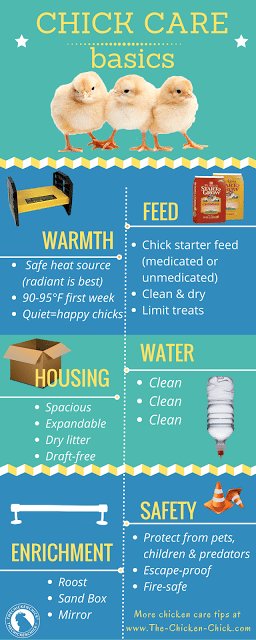
A Comprehensive Guide to Nurturing Baby Chicks: A Journey from Hatch to Hen
Introduction
The arrival of baby chicks is a delightful and rewarding experience for poultry enthusiasts and backyard homesteaders alike. These tiny bundles of fluff require meticulous care and attention to thrive and reach their full potential. This comprehensive guide will provide you with all the essential knowledge and practical tips to ensure the well-being and optimal growth of your baby chicks.
Preparing the Brooder
Before the chicks arrive, it is crucial to prepare a suitable brooder to provide them with a warm, safe, and comfortable environment.
- Size: The brooder should be large enough to accommodate the number of chicks you have, allowing them ample space to move around and explore.
- Temperature: Baby chicks require a warm environment, especially during their first few weeks of life. Maintain a temperature of 95-100°F (35-38°C) for the first week, gradually reducing it by 5°F (3°C) each week until it reaches room temperature.
- Bedding: Provide a soft and absorbent bedding material such as wood shavings, straw, or shredded paper. Avoid using materials that can be easily ingested, such as sawdust or sand.
- Ventilation: Ensure adequate ventilation to prevent ammonia buildup, which can be harmful to the chicks’ respiratory health.
Feeding and Watering
- Feed: Provide a high-quality starter feed specifically formulated for baby chicks. It should contain 18-20% protein and be free of medications.
- Water: Fresh, clean water is essential for hydration and growth. Use a shallow waterer with a stable base to prevent tipping.
- Feeding Schedule: Feed chicks frequently, offering small amounts of feed several times a day. As they grow, gradually reduce the frequency of feedings.
Brooder Management
- Cleaning: Regularly clean the brooder to maintain hygiene and prevent disease. Remove wet or soiled bedding daily and disinfect the brooder weekly.
- Lighting: Provide 24 hours of light for the first week, gradually reducing it to 16-18 hours per day as they mature.
- Monitoring: Observe the chicks daily for any signs of illness or distress. Check for respiratory issues, diarrhea, or any unusual behavior.
Health and Vaccination
- Vaccinations: Consult with a veterinarian to determine the appropriate vaccination schedule for your chicks based on your location and potential disease risks.
- Disease Prevention: Implement biosecurity measures to prevent the introduction of diseases. Isolate new chicks from existing flocks and avoid contact with wild birds.
- Common Health Issues: Be aware of common health issues in chicks, such as coccidiosis, Marek’s disease, and respiratory infections. Seek veterinary attention promptly if any symptoms are observed.
Transitioning to the Coop
- Age: Chicks can typically be moved to the coop when they are 6-8 weeks old and fully feathered.
- Coop Preparation: Ensure the coop is clean, well-ventilated, and predator-proof. Provide roosts, nesting boxes, and a secure outdoor run.
- Gradual Transition: Gradually introduce the chicks to the coop by allowing them to spend short periods outside during the day. Gradually increase the time spent outside until they are fully acclimated.
Outdoor Care
- Protection from Predators: Protect the chicks from predators by securing the outdoor run with wire mesh or fencing.
- Shade and Shelter: Provide shade and shelter from the elements, especially during hot or cold weather.
- Free Range: Allow the chicks to free range once they are fully feathered and vaccinated. Supervise them closely to ensure their safety.
Additional Tips
- Handle with Care: Handle chicks gently and avoid excessive handling.
- Socialization: Provide opportunities for chicks to socialize with each other and with humans.
- Toys and Enrichment: Offer toys and enrichment activities to stimulate their physical and mental development.
- Record Keeping: Maintain accurate records of vaccinations, health observations, and feed consumption for future reference.
Conclusion
Nurturing baby chicks is a rewarding and educational experience that requires patience, attention to detail, and a commitment to their well-being. By following the comprehensive guidelines outlined in this guide, you can provide your chicks with the optimal care they need to thrive and reach their full potential as healthy and productive hens. Remember to consult with a veterinarian for professional advice and support whenever necessary.
